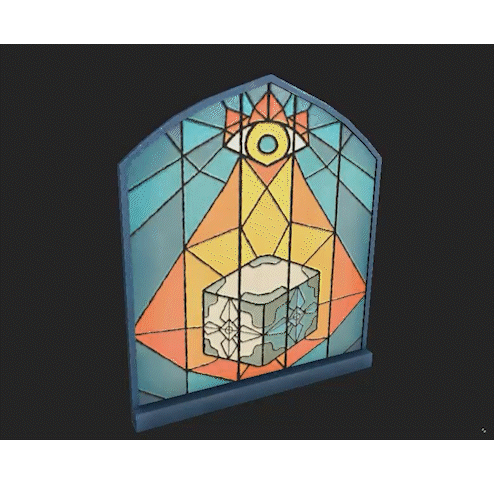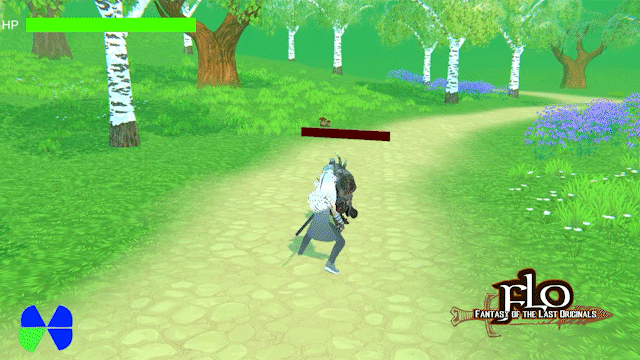Post-mortem, retrospective--whatever you want to call it, reflecting back on your experience after a game's work comes to an end is a worthy endeavor. It gives developers a reason to pause and take the space and time needed to assess all the things that went right, wrong, and everything in between, and consciously take those lessons with them onto their next project. So, after launching Third Power on Steam last month, my fellow devs and I took the time to collect our thoughts on the experience, and we had the honor of being invited to present them to our local game dev group, The Philly Game Mechanics.
You can watch the whole presentation here:
Below, I'll discuss the project from my own (comparatively) narrow scope as that of the Narrative Designer, and I'd be curious to hear if anyone reading has their own thoughts about making projects similar to this that they'd be willing to share.
What went right?

I think our strategy of using discoverable narrative elements throughout the levels that slowly start to reveal the game story worked really well. We worked together to tell a story from the inside out (spoiler: the player learns they are actually breaking out of the cave, not venturing in in search of treasure and fortune as likely would be assumed), so it was really fun to create hints that made sense both forward and backward.

I also really loved helping direct the use of assets for storytelling (which worked so well because of our UX/UI designer Irene's significant talent and great communication). I think we did a good job telling a story in a compact space that accentuates the gameplay and does not impede it.

Every time I work with a team, be it a game jam or a longer project like this one, I use it as an opportunity to get better acquainted with the game development pipeline as a whole. I keep up with every single Discord channel constantly, so I can better understand what is going on with the concept art, audio mixing, level design, etc. These projects are a great place to become educated in other fields and see how all elements of the process work together. I think everyone could benefit from this peek inside each department's process, but someone who wants to work as a narrative designer especially needs to understand the broad ins and outs of nearly every department from art to programming to audio.
Which brings me to my next point.
What went wrong?
I got a job during the early stages of this project, so I couldn’t do dive in as much as I would have liked right from the beginning. Being brought in after some elements have been decided on is a challenge that I like about game writing, though, so I still enjoyed this part of the process a lot. I was presented with gameplay elements--like having a human that turns into an intricate cube and solves puzzles--and from there, I built a narrative and crafted the game's story. Not ideal, perhaps, because I'd love to have been there from the beginning, but this is honestly how a lot of studios do it, so I welcomed the experience either way.
One issue with projects like this in general is that, since we are all volunteers, it’s hard to really take leadership in collaborative work. One of the reasons I pay attention to what’s going on all over the place is because, in theory and depending on the project, a narrative designer might direct artists to alter their work so that their creations strike the right narrative tone, tell the sound designers that their audio needs to feel a little more this or that to really fit the feel of the space, or even get into the nitty gritty on character design right down to what the MC’s gait might look like. In work like this, I don't feel empowered to come to a bunch of volunteers and direct their work in the way that someone in a leadership position might otherwise do. Since we’re all volunteering our time and most of us have other jobs, we don’t often have the time for multiple takes on the same game element and, to put it bluntly, who the heck am I anyway to be telling folks what to do anyway? In the end, just another volunteer on a pretty big (for a project like this) remote team.

That’s not to mention how many of us (myself included) couldn’t always be around for team meetings and things like that, so coordinating live was often difficult. But with this more laisser-faire approach, things come out a little less cohesive at best and disconnected at worst. I did my best to try and point people to the GDD and general agreed-upon elements of the narrative when I could, but didn’t feel comfortable “forcing” things, for lack of a better word, like I have on paid projects where roles are more strictly defined and people are compensated for their time.

I’ve also learned that even with a GDD or even just a narrative plan available, not everyone involved in the project is going to reference it when making their assets, which can be frustrating, especially when a lot of work was put into making it accessible and expecting that, since our team was spread across time zones and continents, members would work to keep themselves abreast of plans made that direct development. But, again, it's hard to be too mad, as again, everyone was volunteering their time.
Conclusions
I’m proud of the work we did. With our hodgepodge team of volunteers and in the short time we gave ourselves, I think we did a pretty great job, considering. I don't think Third Power is going to blow anyone's socks off necessarily, but we've got a ton of downloads and generally positive feedback for something done in such a short amount of time. (Probably helps that it's listed on Steam at the low, low price of free as well!) There's a saying that your first 10 games will suck, so hurry up and make those so you can make the good ones. Well, I don't think Third Power "sucks," but I do know we still have a long way to go. That being said, It was a really great learning experience that I'm happy to have been a part of, and I can't wait to see what the team does next.

Action Plan
As for what I've learned during my time on this project that I can apply to similar jobs in the future, I'll say that, though I’m not someone who has the luxury of putting a full-time job’s amount of work into an unpaid side project, on similar projects in the future, I’d like to try and be more present in live meetings when possible (but there’s a lot hanging on that “when possible,” haha).

Moving forward, I think I might also break down agreed-upon narrative elements for each department to try and help keep a cohesive vision from the start more accessible to teams without expecting them to study the greater GDD (even though I still think this is good practice).
Finally, if I am able to be more present on another volunteer project like this one, I’d also like to get myself comfortable taking charge a little more. Even as volunteers, if I can help us all stay on the right track, that’s less time wasted, less frustration, and a more cohesive piece of work we can all be proud of.
--
Enjoyed this post? See new articles as they're released by becoming a subscriber.











































